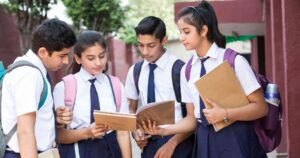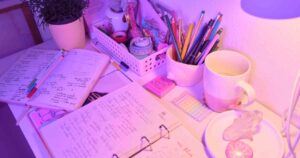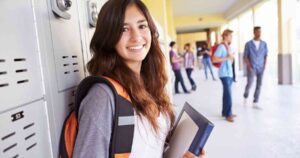In today’s educational landscape, collaboration and cooperative learning have emerged as powerful strategies for creating a positive and effective learning environment. By fostering active participation, peer-to-peer interaction, and the exchange of ideas, these approaches empower students to develop essential interpersonal and communication skills while working towards a common goal. In this article, we explore the significance of collaboration and cooperative learning in education, providing practical insights and actionable tips to help educators cultivate a dynamic and inclusive classroom environment.

Encouraging Collaboration and Cooperative Learning
Collaboration and cooperative learning are powerful strategies for creating a positive learning environment. By engaging in collaborative activities, students develop essential interpersonal and communication skills while working together toward a common goal. Collaborative learning encourages active participation, peer-to-peer interaction, and the exchange of ideas.
Teachers can promote collaboration by assigning group projects, facilitating effective group discussions, and encouraging students to take on different roles within the group. Cooperative learning also fosters a sense of responsibility, teamwork, and mutual support among students. By incorporating collaborative and cooperative learning strategies, teachers create a dynamic and inclusive classroom environment where students learn from one another, build relationships, and develop essential social skills.
Addressing Misbehavior Promptly and Fairly
Addressing misbehaviour promptly and fairly is an integral part of maintaining a positive learning environment. When misbehaviour is left unaddressed, it can disrupt the classroom climate, impede learning, and create a negative atmosphere. Teachers should establish clear consequences for misbehaviour and consistently enforce them.
However, it is equally important to approach discipline with empathy, understanding that misbehaviour often stems from underlying issues or unmet needs. By addressing misbehaviour promptly and fairly, teachers send the message that everyone’s rights and well-being are respected, while also providing an opportunity for growth and learning. This approach helps maintain a positive and inclusive learning environment where students feel safe, supported, and accountable for their actions.
Embracing Technology as a Tool for Learning
In today’s digital age, embracing technology as a tool for learning can significantly enhance the classroom environment. Technology offers various opportunities for engagement, collaboration, creativity, and access to information. By incorporating educational apps, online resources, multimedia presentations, and interactive platforms, teachers can cater to different learning styles and provide enriching learning experiences.
Technology can facilitate personalized learning, allowing students to explore topics at their own pace and delve deeper into areas of interest. Additionally, technology can bridge geographical barriers, connecting students with experts, resources, and perspectives from around the world. By embracing technology, teachers create a modern and engaging learning environment that prepares students for the challenges and opportunities of the digital age.
Providing Support for Special Needs Students
Creating a positive learning environment involves providing support and accommodations for students with special needs. Inclusive education ensures that all students, regardless of their abilities or disabilities, have equal opportunities to learn and participate in the classroom. Teachers can create an inclusive environment by familiarizing themselves with the specific needs of their students, collaborating with special education professionals, and implementing appropriate accommodations and modifications.
This may include providing assistive technologies, offering additional support through individualized education plans (IEPs) or 504 plans, and fostering a culture of acceptance and understanding among students. By providing support for special needs students, teachers create an inclusive and equitable learning environment where every student can thrive and reach their full potential.
Encouraging Reflection and Metacognition
Encouraging reflection and metacognition is a valuable strategy for creating a positive learning environment. When students engage in reflective practices, they become more aware of their learning processes, strengths, and areas for improvement. Reflection allows students to make connections between new knowledge and their prior experiences, promoting deeper understanding and critical thinking.
Teachers can encourage reflection by incorporating regular opportunities for self-assessment, journaling, and goal-setting. Metacognition, on the other hand, involves thinking about one’s thinking. By teaching students metacognitive strategies such as planning, monitoring, and evaluating their learning, teachers empower them to become independent and self-directed learners. Encouraging reflection and metacognition creates a positive learning environment where students take ownership of their learning, become active participants in the learning process, and develop valuable lifelong learning skills.
Providing Meaningful and Relevant Content
Providing meaningful and relevant content is essential in creating a positive learning environment. When students perceive the content as meaningful and applicable to their lives, they are more likely to be engaged and motivated to learn. Teachers can make content meaningful by connecting it to real-world examples, current events, students’ interests, and personal experiences.
By highlighting the relevance of the content, teachers answer the age-old student question, “Why do I need to learn this?” Providing meaningful and relevant content helps students see the value in what they are learning and fosters a positive attitude toward the subject matter. It also encourages students to make connections between different areas of knowledge and promotes a deeper understanding of the material.

Encouraging Active Listening and Effective Communication
Active listening and effective communication are fundamental skills for creating a positive learning environment. By encouraging active listening, teachers ensure that students are fully engaged in classroom discussions, lectures, and presentations. Active listening involves giving one’s full attention, asking clarifying questions, and providing feedback. It promotes mutual respect, understanding, and meaningful dialogue among students and between students and teachers.
Effective communication goes beyond listening; it encompasses expressing ideas clearly, using appropriate language, and practising active and empathetic communication skills. Teachers can model effective communication and provide opportunities for students to develop their communication skills through class discussions, presentations, and collaborative projects. By encouraging active listening and effective communication, teachers foster a positive and inclusive learning environment where ideas are valued, conflicts are resolved constructively, and students feel heard and understood.
Providing Opportunities for Student Voice and Choice
Providing opportunities for student voice and choice is a powerful way to create a positive learning environment that empowers students. When students have a say in their learning, they become active participants rather than passive recipients of knowledge. Teachers can provide opportunities for student voice and choice by involving students in decision-making processes, such as selecting topics for projects, designing assignments, or choosing learning activities. This approach promotes student autonomy, ownership, and intrinsic motivation.
When students have a sense of agency and control over their learning, they are more engaged, invested, and enthusiastic about their educational journey. Providing opportunities for student voice and choice creates a positive learning environment where students feel empowered, valued, and respected as contributors to the learning community.
Celebrating Diversity and Multiculturalism
Celebrating diversity and multiculturalism is an integral part of creating a positive learning environment that embraces differences and promotes cultural understanding. In a diverse classroom, students come from various cultural, ethnic, linguistic, and socioeconomic backgrounds.
By acknowledging and celebrating this diversity, teachers foster a culture of inclusivity, respect, and acceptance. Teachers can incorporate multicultural literature, resources, and activities that highlight different cultures, traditions, and perspectives. This promotes empathy, tolerance, and a broader worldview among students. It also provides an opportunity for students to learn from one another, challenge stereotypes, and develop cultural competence. By celebrating diversity and multiculturalism, teachers create a positive learning environment where every student feels seen, valued, and represented.
Promoting a Growth Mindset Among Teachers
Promoting a growth mindset among teachers is just as important as fostering it in students. When teachers embrace a growth mindset, they believe in their own capacity to grow, learn, and improve their teaching practices. Teachers with a growth mindset are open to feedback, embrace challenges, and view setbacks as opportunities for growth.
By continuously seeking professional development, staying informed about research-based practices, and reflecting on their teaching, teachers can enhance their effectiveness and create a positive learning environment. Teachers can also model a growth mindset for their students, demonstrating that learning is a lifelong journey and that everyone can achieve success with effort and perseverance. Promoting a growth mindset among teachers fosters a positive school culture, collaborative learning communities, and continuous improvement in teaching and learning.

Encouraging Parent and Community Involvement
Encouraging parent and community involvement is a crucial aspect of creating a positive learning environment. When parents and the broader community are engaged in students’ education, it reinforces the notion that education is a shared responsibility. Teachers can foster parent and community involvement by establishing open lines of communication, hosting parent-teacher conferences, involving parents in school activities, and collaborating with community organizations.
Involving parents and the community promotes a sense of partnership, support, and shared goals. It also provides additional resources, diverse perspectives, and real-world connections that enrich the learning experience for students. By encouraging parent and community involvement, teachers create a positive learning environment that extends beyond the classroom walls and cultivates a strong and supportive educational community
Collaboration and cooperative learning are invaluable strategies for creating a positive learning environment where students can develop essential interpersonal skills, actively engage in the learning process, and construct knowledge through peer interaction. By incorporating group projects, facilitating effective discussions, establishing clear expectations, and encouraging rotating roles, educators can cultivate a dynamic and inclusive classroom that empowers students to thrive academically and socially. By embracing these strategies, we can create a learning environment that prepares students for success in an interconnected and collaborative world.
Remember, fostering collaboration and cooperative learning is just one piece of the puzzle when it comes to optimizing the learning environment. To achieve optimal search engine rankings, it is essential to focus on other relevant factors such as website structure, keyword optimization, quality backlinks, and user experience. By consistently providing high-quality and relevant content, along with implementing SEO best practices, you can increase your website’s visibility and outrank competitors in search engine rankings.
Now, let’s work together to create an engaging and impactful learning environment through collaboration and cooperative learning!












